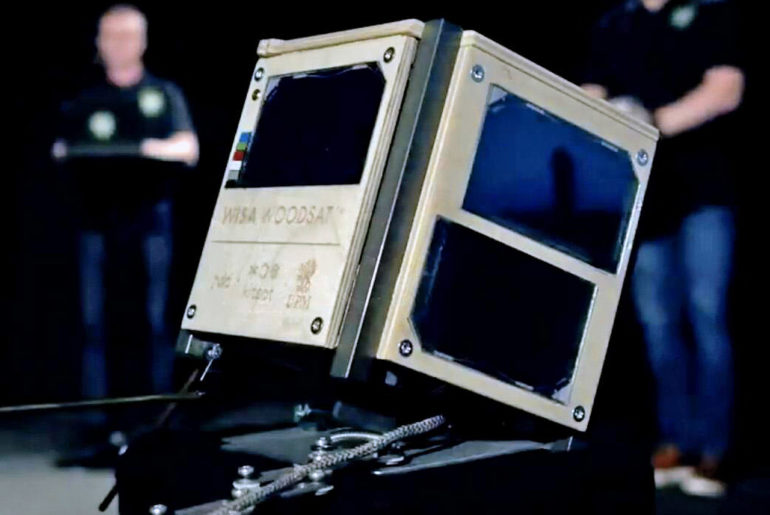
WISA Woodsat is essentially a 10x10x10 cm ‘CubeSat’, which is a type of nanosatellite made from standardized boxes, but with surface panels made from plywood. The only non-wooden external parts are corner aluminum rails used for its deployment into space, along with a metal selfie stick. Weighing just 2.2-pounds, it uses a specially coated plywood, called WISA, for its surface panels, and the mission aims to test the durability of this construction.
The satellite will be equipped with a pair of onboard cameras and an extended on a selfie stick to look back at the plywood as well as take pictures to see how it is behaving – such as color changes, cracks, etc. Aside from the cameras and ESA-donated sensor suite, Woodsat is also transporting an amateur radio payload that allows amateurs to relay radio signals and images around the globe. All you need to downlink data from this ‘LoRa’ radio link is to purchase ‘ground station’ costing as little as €10 ($12 USD). It’s set to launch before the end of this year.
- POWERFUL TELESCOPE FOR ASTRONOMY BEGINNERS: The AstroMaster 130EQ delivers sharp optics, a stable equatorial mount, and smooth manual controls, making...
- HIGH-QUALITY 130MM OPTICS: Enjoy views through the 130mm (5”) Newtonian reflector, which features high-quality aluminum and SiO₂ coatings and...
- SMOOTH, ACCURATE POINTING: Effortlessly aim and center your target using the two slow-motion control knobs for right ascension and declination whether...
The main difference is that ordinary plywood is too humid for space uses, so we place our wood in a thermal vacuum chamber to dry it out. Then we also perform atomic layer deposition, adding a very thin aluminium oxide layer – typically used to encapsulate electronics. This should minimise any unwanted vapours from the wood, known as ‘outgassing’ in the space field, while also protecting against the erosive effects of atomic oxygen. We’ll also be testing other varnishes and lacquers on some sections of the wood,” said Woodsat chief engineer and Arctic Astronatics co-founder Samuli Nyman.





